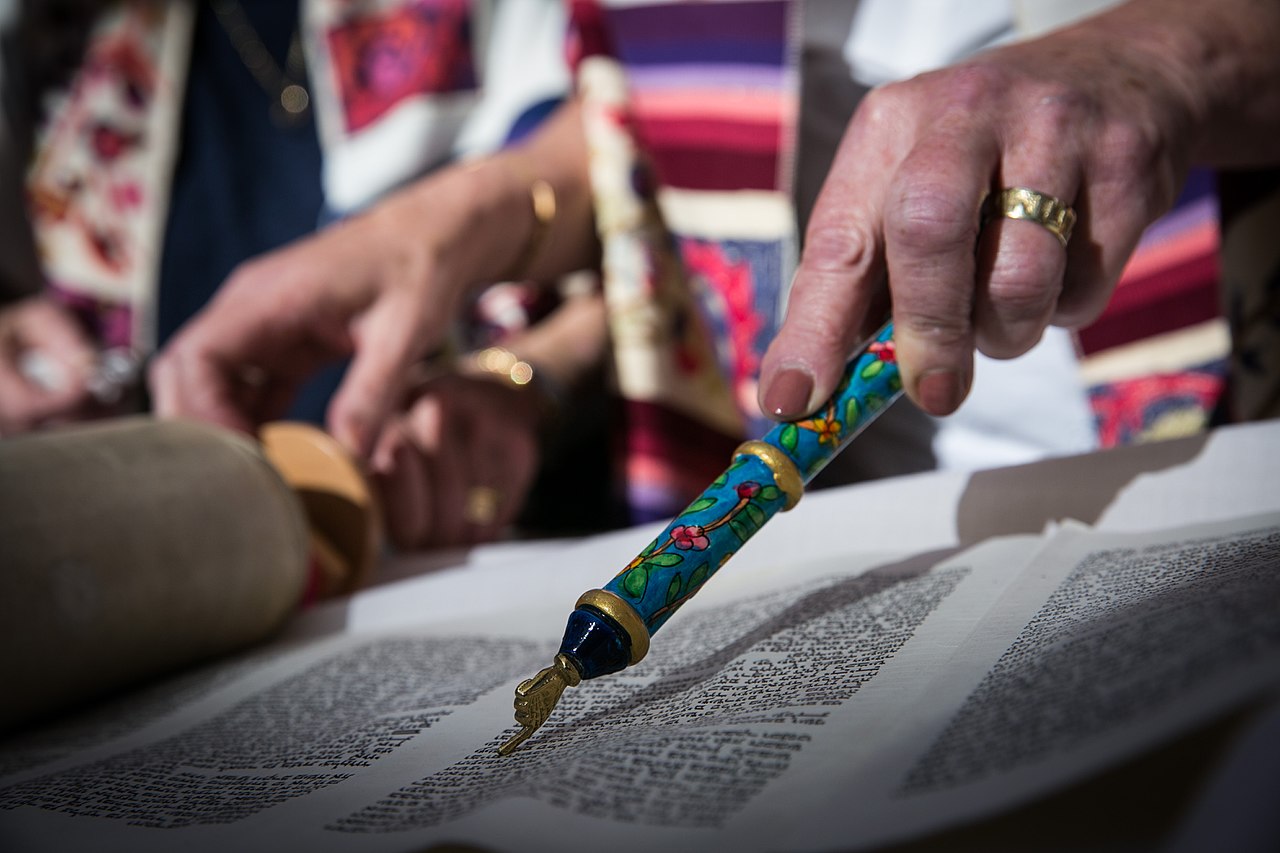This is an archive of prayers, prayer-poems, and songs for the festival of Simḥat Torah, celebrated on the same day as Shemini Atseret in Erets Yisrael and on the second festival day of Shemini Atseret outside of Erets Yisrael.
⤷ You are here:
🖖︎ Prayers & Praxes —⟶ 🌔︎ Prayers for the Moon, Month, and Festival Calendar —⟶ Pilgrimage Festivals (Ḥagim/Regalim) —⟶ Simḥat Torah 🡄 (Previous category) :: 📁 Shemini Atseret 📁 Sigd Festival :: (Next Category) 🡆 Simḥat TorahThis is an archive of prayers, prayer-poems, and songs for the festival of Simḥat Torah, celebrated on the same day as Shemini Atseret in Erets Yisrael and on the second festival day of Shemini Atseret outside of Erets Yisrael. Filter resources by Collaborator Name Shmuel haDayan | Marcus Heinrich Bresslau | Isaac Gantwerk Mayer | Moritz Mayer (translation) | Isaac Gantwerk Mayer (transcription & naqdanut) | Isaac Gantwerk Mayer (translation) | Yehoshua Heshil Miro | Penina Moïse | Andreas Rusterholz (transcription) | Honi Sanders (translation) | Akiva Sanders (translation) | Fanny Schmiedl-Neuda | Raphael Barukh Toledano | Unknown | Unknown (translation) | Aharon N. Varady (translation) | Aharon N. Varady (transcription) | Julia Watts Belser (translation) | Wikisource Contributors (transcription) | Ḳahal Ḳadosh Beth Elohim (Charleston, South Carolina) | Ḳaraite Jews of America Filter resources by Tag ABAB rhyming scheme | acrostic | phonetic alphabetic acrostic translation | Alphabetic Acrostic | anti-soporific | Aramaic | אין אדיר Ayn Adir | Bohemian Jewry | English vernacular prayer | epithalamion | הקפה ד׳ fourth haḳafah | German Jewry | German vernacular prayer | Har Sinai | hymns | Jewish Women's Prayers | Judeo-Arabic | Nusaḥ haKaraim | Kavkazi Jewry | Maḥzor Aram Tsoba | mid-first millennium CE | Minhag Aleppo Musta'arabi | Mosheh Rabbenu | mourning | Needing Source Images | Nusaḥ Erets Yisrael | פיוטים piyyuṭim | פזמונים pizmonim | קינות Ḳinōt | Simḥat Torah | South Carolina | stimulant | תרגום targum | תחינות teḥinot | Teḥinot in German | התורה the Torah | via negativa | זמירות zemirot | 7th century C.E. | 12th century C.E. | 17th century C.E. | 19th century C.E. | 20th century C.E. | 45th century A.M. | 50th century A.M. | 54th century A.M. | 56th century A.M. | 57th century A.M. Filter resources by Category During the Aliyot | Rosh haShanah la-Melakhim | Parashat Yitro | Se'udat Leil Shabbat | Shavuot | Shiv'ah b'Adar | Engagements & Weddings Filter resources by Language Filter resources by Date Range PrayersReadings Resources filtered by COLLABORATOR: “Julia Watts Belser (translation)” (clear filter) Sorted Chronologically (old to new). Sort most recent first? This is Fanny Neuda’s prayer “on Simḥat Torah,” faithfully transcribed and proofread with the help of German Wikisource contributors from Fanny Neuda’s Stunden Der Andacht (1855), p. 66-67. We are happy to share your translation of Neuda’s tkhines in any language. The translation provided here was made by Julia Watts Belser for Hours of Devotion: Fanny Neuda’s Book of Prayers for Jewish Women (ed. Dinah Berland, Schocken 2007), and set here for the first time side-by-side with Neuda’s original German. . . . Categories: Tags: 19th century C.E., 57th century A.M., Bohemian Jewry, German vernacular prayer, Jewish Women's Prayers, תחינות teḥinot, Teḥinot in German Contributor(s):
Stable Link:
https://opensiddur.org/index.php?cat=6787
Associated Image: 
Torah reading by women (credit: Yochi Rappeport, license: CC BY-SA) (This image is set to automatically show as the "featured image" in shared links on social media.)
Terms of Use:
Be a mentsch (a conscientious, considerate person) and adhere to the following guidelines:
Additional Notes:
Support this work:
The Open Siddur Project is a volunteer-driven, non-profit, non-commercial, non-denominational, non-prescriptive, gratis & libre Open Access archive of contemplative praxes, liturgical readings, and Jewish prayer literature (historic and contemporary, familiar and obscure) composed in every era, region, and language Jews have ever prayed. Our goal is to provide a platform for sharing open-source resources, tools, and content for individuals and communities crafting their own prayerbook (siddur). Through this we hope to empower personal autonomy, preserve customs, and foster creativity in religious culture.
ויהי נעם אדני אלהינו עלינו ומעשה ידינו כוננה עלינו ומעשה ידינו כוננהו "May the pleasantness of אדֹני our elo’ah be upon us; may our handiwork be established for us — our handiwork, may it be established." –Psalms 90:17
| ||
Sign up for a summary of new resources shared by contributors each week
  |
